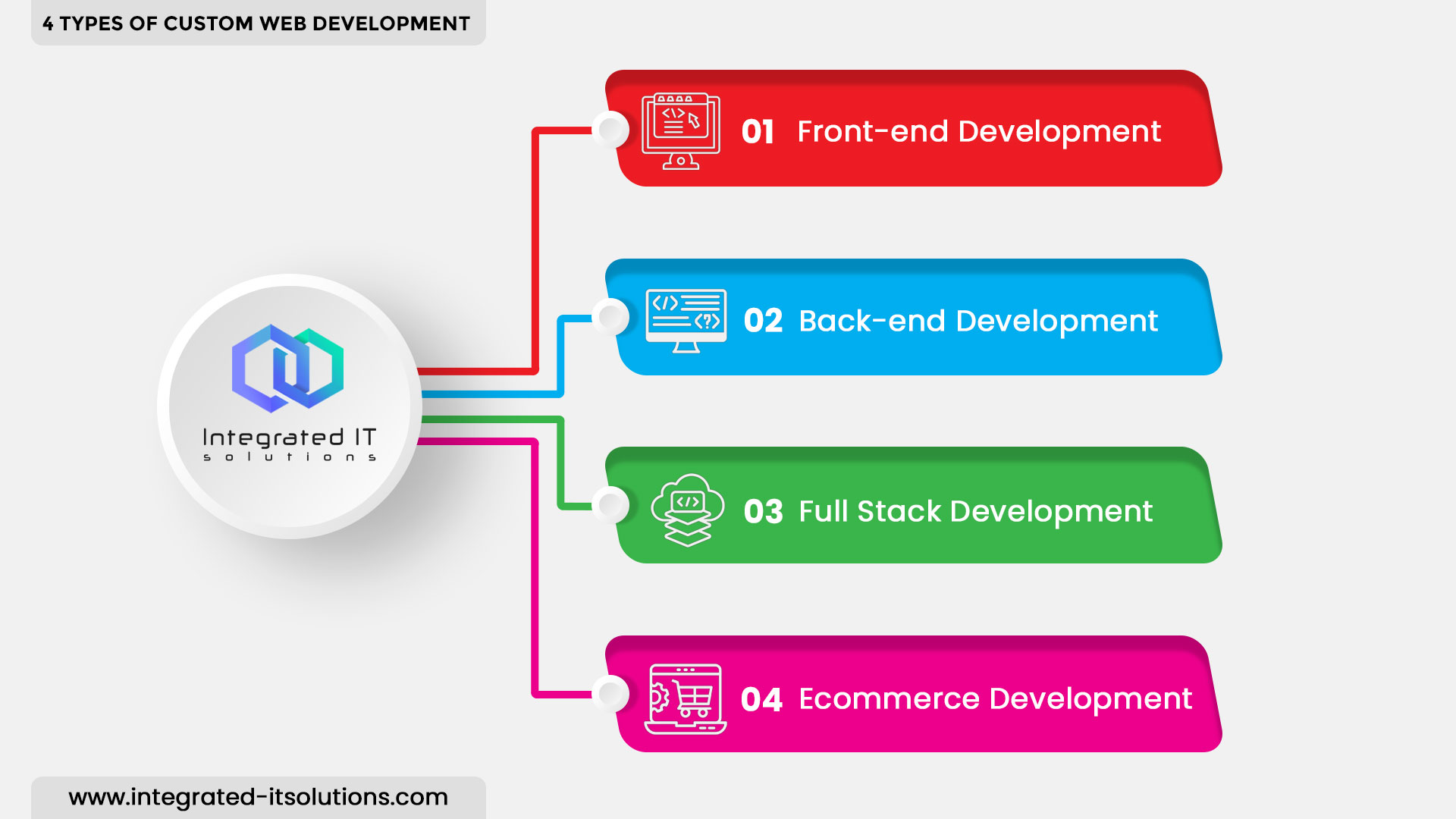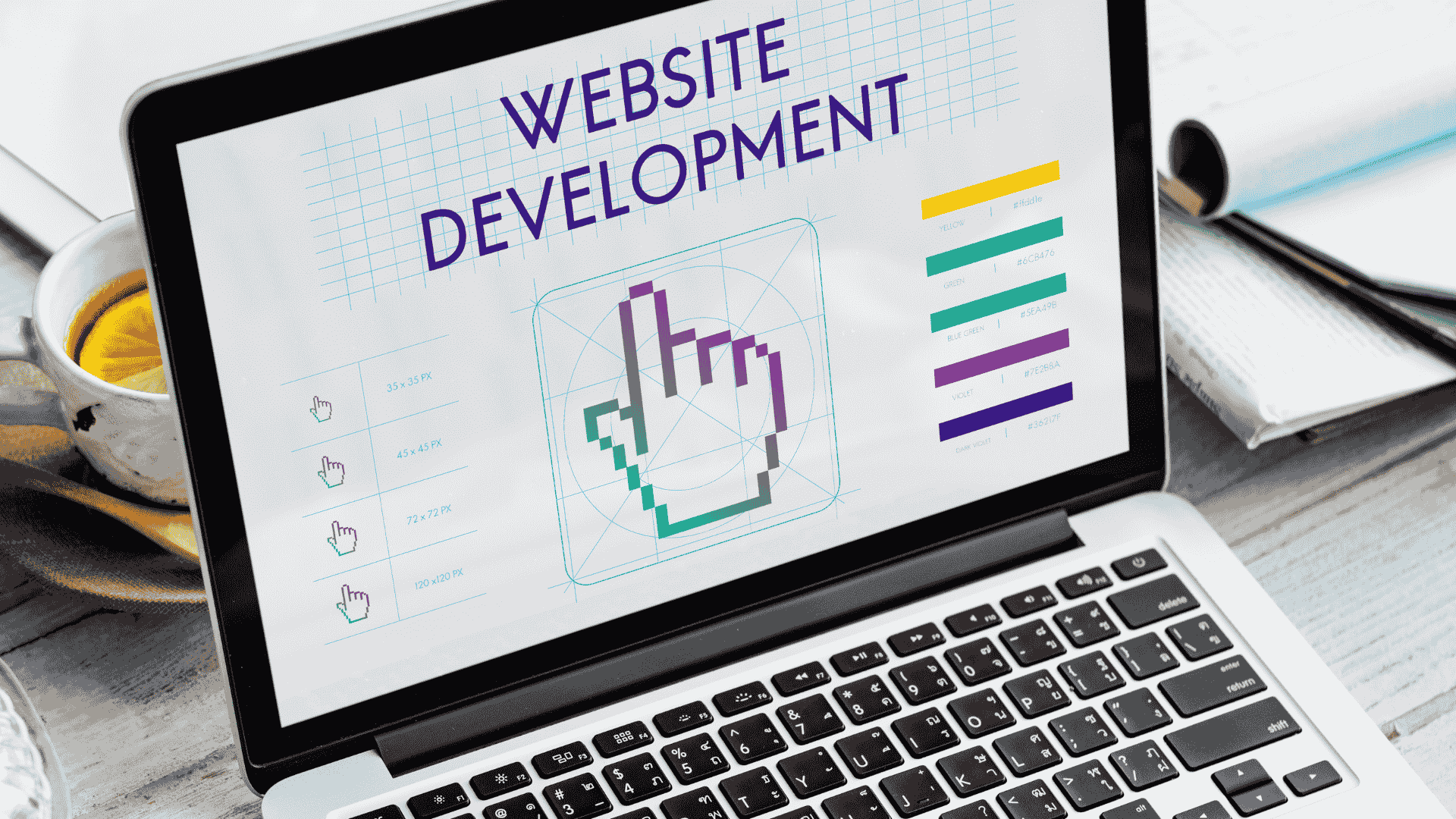Are you ready to take your website from concept to launch using Custom Web Development? In our previous blog, we shed light on the basic overview of custom web development services.
From its definition to the differences we shared, the upsides and downsides, and why custom web development is the way to go.
Now it’s time to uncover some advanced insights regarding custom web development services.
Things To Know Before Getting into a Custom Web Development Service
If you want to get a strong grip on custom web development ideas and tools, it is necessary to understand a few acronyms deeply.
HTML
HTML or Hypertext Markup Language is the foundation of every web page. However, with the help of it custom web designers design web pages and arrange content.
CSS
Cascading Style Sheets (CSS) are used to customize web pages for their outer looks. It identifies elements such as color, typeface, spacing, and layout. Therefore it is essential to understand how to work with CSS selectors and properties.
JS
Perhaps, JavaScript is a programming language that helps with website development for creating dynamic and engaging content for websites. Thus, it is mandatory to learn variables, data types, functions, and others before custom web development services.
RWD
Web design should be responsive on different screen sizes and types of devices. For such purposes, you must learn the fundamentals of media queries, fluid grids, and responsive web designs.
VCS or SCM
Simply monitor the changes to your codebase using the version control system (VCS) or source control management (SCM). However, when we say version control, we’re obvious about the Git option.
Top 4 Types of Custom Web Development

1. Front-end Development
The visitor-centric approach toward a website and application is the cornerstone of front-end development. For example,
- Creating and optimizing the user interface (UI)
- Focusing on important elements of web design
- Using best practices for debugging website issues
Besides this, web developers may build ideal web designs with the help of tools like front-end programming languages. Hence it is necessary to be aware of certain programming languages, tools, and resources to become a front-end developer.
2. Back-end Development
As a back-end developer, your main concern is with the server-side elements of custom websites and apps. This type of development focuses on everything you can’t see on a website. Their primary focus is on the following things:
- Database Interface
- Back-end Concepts
- Programming
- Application Programming Interface APIs
- Website Architecture
- Servers
More comprehensively, back-end developers are equipped with the above tools because their main goal is to check how a website runs. Therefore the coordination from both front and back-end developers ensures the development of a dynamic and engaging user experience (UX).
3. Full Stack Development
Full stack development is the process of developing both the front end and back end of website applications. In fact, it is the process of designing, creating, testing, and deploying an entire website application from scratch.
This sort of development includes competence in different techs and tools, for example,
- Forming Database
- Front-end website development
- Back-end website development
4. E-commerce Development
E-commerce web development is the process of building and designing an e-commerce website where consumers can buy goods and services online. So for such purpose, there is a dire need for the following components:
- User-friendly Interface
- Practice of Product Catalog Management
- Secure Online Payment Processing System
- Augmented Reality for Redefining Shopping Experience
So, creating a platform that facilitates safe and user-friendly infrastructure is essential. A better online customer selling experience is the foundation of e-commerce web development services.
CMS
A content management system (CMS) is a software application that uses a database to handle whole content and is utilized during website development. Additionally, a CMS gives you the potential to create a digital environment without performing basic steps.
However, CMS’s ability to simplify the human burden is through developing the webpage infrastructure, appealing visuals, and integrating other features. Thus, it’s essential to note that content management systems have to cover different domains, not only websites.
6 Best Platforms for Building Custom Websites
WordPress
WordPress is considered one of the most in-use CMS. Its user-friendly interface, personalized options, wide range of themes, and plugins give rise to its popularity. Although with this platform, you can easily build custom websites, forums, membership sites, blogs, and much more.
Magento now as (Adobe Commerce)
It is a flexible and scalable e-commerce platform that enables you to create tailored B2B and B2C experiences, without brand limits. This platform is built with exceptional services, an easier user interface, and also many pre-developed extensions that can be used for custom web development services.
Shopify
Shopify is a relatively good choice for those who are looking to create scalable, reliable, and online retail stores. It is ideal for customers who want a perfect shopping experience. Furthermore, this readymade platform will cover all your business needs with a simple user interface and affordable price.
Drupal
Drupal is an openly available platform for creating excellent digital experiences. It is specifically made by digital communities. It offers you robust CSS, adaptive images, and fluid designs to assist in straightforward custom-built websites.
Laravel
Laravel is known as a PHP web framework with expressive, elegant syntax for building web applications. It is a traffic option for developing websites. Additionally, you can use Laravel if you are searching for a strong framework for building a website.
Wix
Last but not least, Wix offers an unparalleled level of design customization. Thanks to its responsive drag-and-drop editing features, Wix is a well-liked cloud-based website-building platform.
Due to its ease of use, adaptability, and capacity to simplify web design, it is a customized solution for websites. Hence, it enables individuals, companies, and experts to make reliable websites using AI.
Wrap Up
Custom web development services are growing rapidly and are enabling enterprises to provide online solutions for customers. It integrated different technical approaches, good website components, and an ultimate user experience system.
So you can use different development tools, frameworks, and programming languages to have an advantage in the digital landscape. Partner with a top-rated custom web development company to build a high-performance website.




